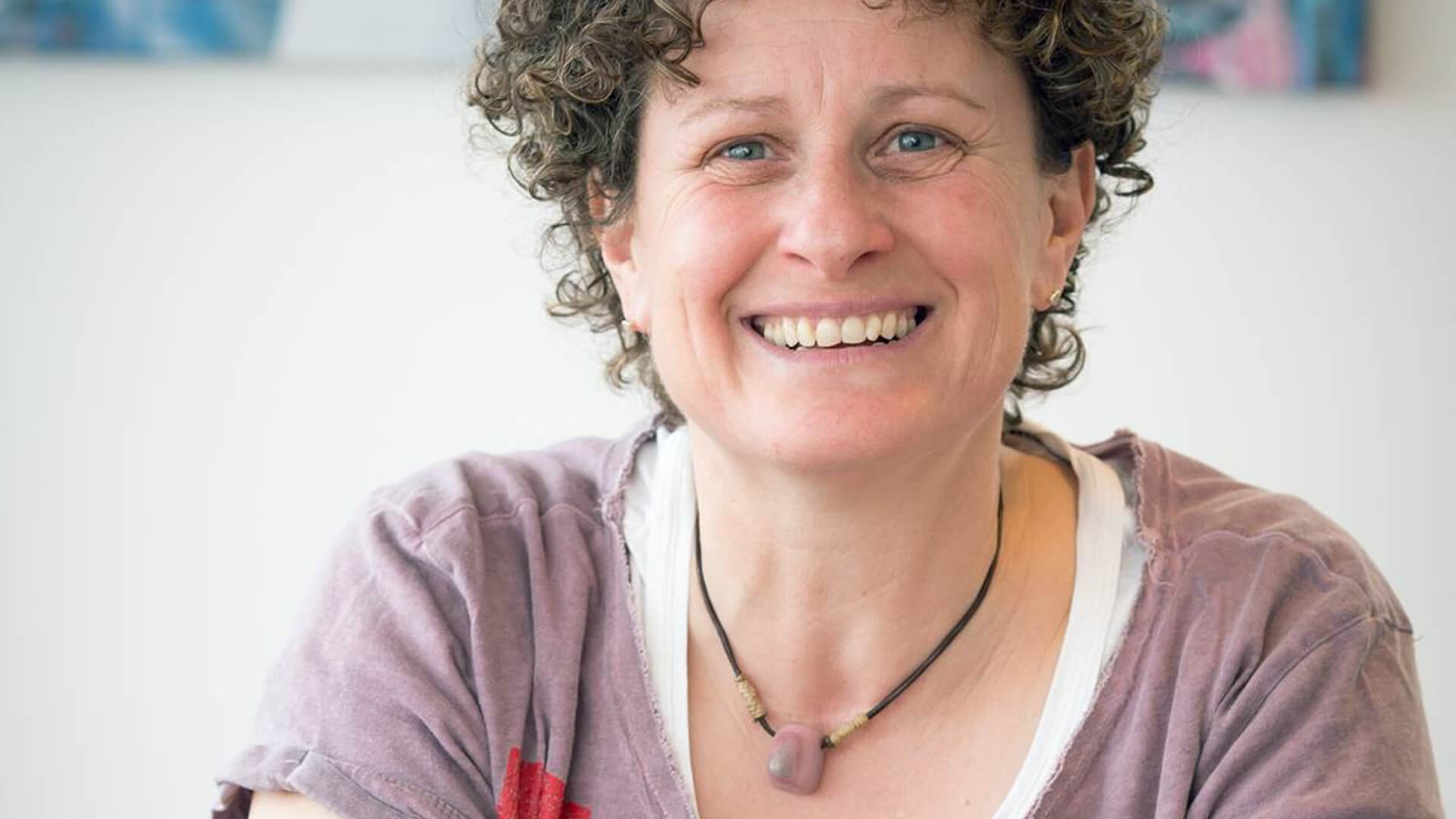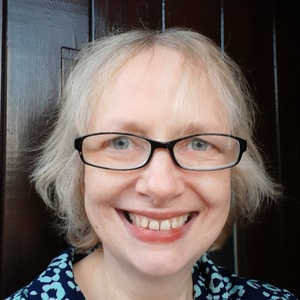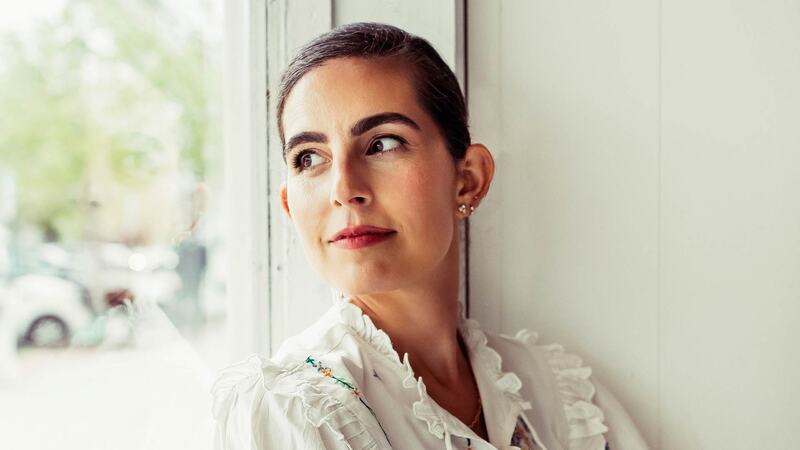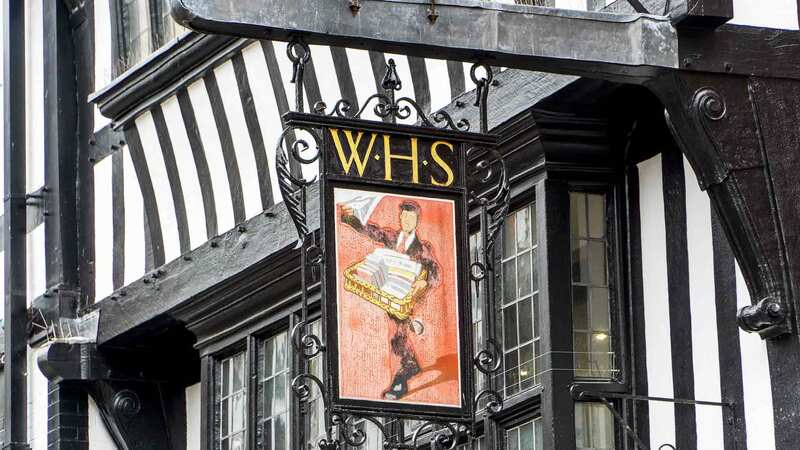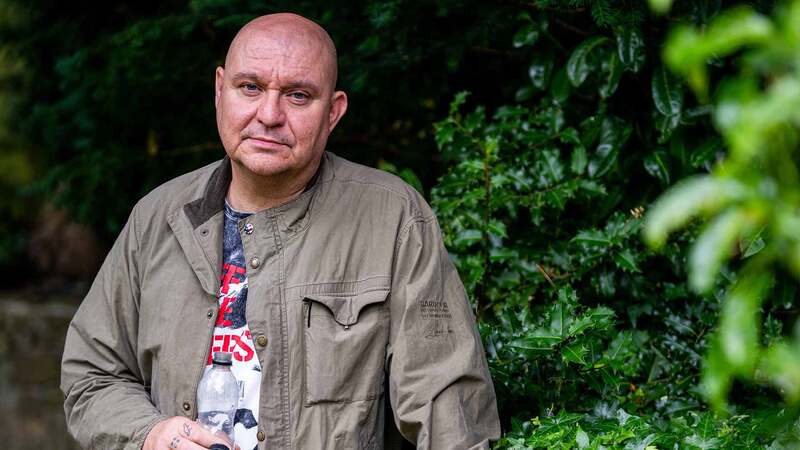You are viewing your 1 free article this month. Login to read more articles.
Liz Kessler | 'I don't like conflict. There's no part of me that wants controversy from this book'
Liz Kessler, author of the much loved Emily Windsnap middle-grade novels, is to show herself in a new light this spring, with publication of her first YA story, Read Me Like a Book.
It is a world away from the Windsnap tales—fantasies about a little girl who is half-mermaid. Instead it’s a contemporary story about a fairly typical, sparky 17-year-old, Ashleigh, muddling her way through many of the common teenage issues—first-date nerves, exam pressures, parent troubles. Her rather lacklustre school life takes an unexpected turn with the arrival of an inspirational English teacher who really seems to understand her. A relationship with a boyfriend proves abortive, but Ashleigh’s feelings about Miss Murray become increasingly intense, and she starts to question herself, coming to recognise that she is a lesbian.
Read Me Like a Book is actually the first book Kessler ever wrote, begun while she was on a Manchester Metropolitan University creative writing course and first submitted to publishers by agent Catherine Clarke more than a decade ago. It was rejected by 10 companies, including Orion Children’s Books (OCB), with whom Kessler had already done a deal for her first Emily Windsnap novel.
She says now that while she had mixed feelings when the book was turned down, she was aware of “an enormous sense of relief”. As a lesbian herself, Kessler felt that it would be making too much of herself public before she had even begun her career. “It’s never been a secret with people I work with, or with anyone really, but just in a public way, I felt I would be exposing myself by writing the book,” she says. “And it’s weird because a heterosexual person can write a book with a gay main character and I wouldn’t imagine that would be a scary thing to do, but I don’t think I was ready to do that actually.”
So she turned instead to Emily Windsnap—“I love Emily, I think she’s responsible for so many good things that I have in my life, so I’ll always be grateful to her for choosing me”—and the series became successful, both in the UK and internationally. Orion puts Kessler’s sales—including her Philippa Fisher series—at approximately 4.4 million copies globally across all editions, including e-books.
I think it’s still a struggle to come out as gay. My sense is we’re not there yet—we’re a long way along that road but we’re not there
So far, so straightforward for Kessler’s writing career. But a number of factors prompted her to think back to her rejected first book. Firstly, there was a series of news reports of gay teenagers who had committed suicide over their sexuality. “I think it’s still a struggle to come out as gay. My sense is we’re not there yet—we’re a long way along that road but we’re not there,” says Kessler seriously. “I talk to friends who have children in secondary schools, and some say, ‘Oh, kids don’t care any more if you’re gay or straight, whatever’, but others say, ‘It’s just as bad as it ever was.’”
Then there was the gay rights issue at the 2014 Winter Olympics in Russia, and the “twentysomething angry political activist that’s buried inside me and has never really gone away” started to rise to the surface. “I started feeling like, yes, you know what? I’ve got this lovely career, it’s all nice for me, it’s lovely when children say ‘I loved your books’, but I wanted to do something more than that,” Kessler says.
LGBT anti-bullying group The L Project brought out a song entitled “It Does Get Better”. “It’s so beautiful, you’ve got to listen to it,” urges Kessler. “I listened to it over and over, and cried my eyes out, and I thought: ‘I want to be standing with those people.’”
This time when OCB/Indigo publisher Fiona Kennedy was sent the manuscript, she came back instantly to Kessler, with a text that the author still keeps on her phone: “Times have changed and we’re ready to move with them,” it said. “It was amazing,” Kessler enthuses. “She said: ‘We’re not publishing the book under any kind of pseudonym, it’s you, and actually what’s at the heart of it isn’t so different from what’s at the heart of all of your books —it’s about love and standing up for yourself and being honest about who you are.’ So I’m very proud. And I’m proud of Orion for wanting to go for it and championing it.”
There have been major cultural changes in the years since the book was first written: Section 28, the infamous legislation prohibiting local authorities from “promoting” homosexuality has been repealed; gay marriage is now a reality, and indeed Kessler recently tied the knot with her own partner Laura, something she says has given her extra confidence with the book. Publishing is reflecting those changes: Queen of Teen author James Dawson brought out This Book is Gay (Hot Key) last autumn and The Art of Being Normal features a transgender character; written by author Lisa Williamson (also represented by Clarke), it was published by David Fickling Books in January.
Yet despite a burgeoning LGBT YA scene, Kessler still feels there is an element of risk in putting herself in the public domain. “I definitely fear it,” she confirms. “My biggest readership is in America, where the reception for books that are controversial can be quite polarised—some areas are incredibly accepting and there are other areas that are more traditional. I get emails from parents who say, ‘We love your books, they are so wholesome, we know there are never going to be any surprises for our daughter,’ and I just think, ‘I want to keep them [parents] with me. I want them to know this is just the same, it is a wholesome message.’”
It would seem hard for any reader to dislike Ashleigh, whose funny, frank voice relates the novel. Kessler says she drew on her own days as a naughty Southport teenager, remembering herself as a bit of a skiver and a smoker, with a reputation as a work-shy tearaway. But she transformed when an inspirational teacher switched her on to literature in her late teens. “She saw something in me that nobody else had seen because I was too busy being naughty,” Kessler remembers. “She managed to draw it out, and make me see it, and as she did it I fell in love with literature. It felt as if she opened me up and from that point onwards the real me came out. I think if you have an amazing person in your life at that kind of time—and quite often this is going to be a teacher—it’s life-changing. It certainly was for me.”
Orion also worked hard with Kessler to make sure the book would work for gatekeepers such as school librarians as well as for teens themselves. “I changed things I thought were deal-breakers, and I’m really glad I did because I think the story’s stronger for it.” Kessler says. Pushed to reveal more, she admits, with some laughter, that she toned down Ashleigh’s two sex scenes (one with a boy, the other a girl). “I think I was persuaded less is more,” she says. “Although my friends have asked for the director’s cut.”
She adds: “I don’t like conflict. There’s no part of me that wants controversy from this book. The best thing that could happen, would be to get an email from someone who said, ‘It gave me the confidence to come out to my mum’, or ‘It gave me the push to tell my best friend that I love her and it turns out she loves me too’. Job done.”
Metadata
Imprint Indigo
Publication: 14.05.15
Formats: HB (£10.99)/
EB (£5.99)
ISBN: 9781780622095/ 9781780622118
Rights: World rights (Orion/Indigo); sold in US to Candlewick; Orion will take to Bologna
Editor: Amber Caraveo
Publisher: Fiona Kennedy
Agent: Catherine Clarke, Felicity Bryan Associates





